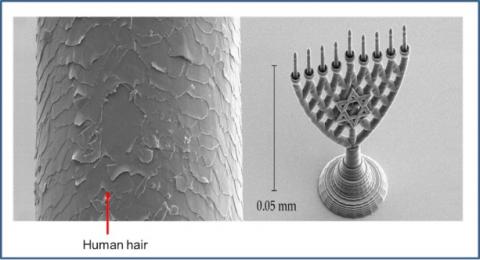Israeli student received the award in Singapore
Kabessa, a nanotechnology expert, was also the brains behind another big Hebrew University event. In December, Kabessa, along with fellow doctoral student Ido Eisenberg, built a nano-scale Hannukah menorah, standing less than a tenth of a milimeter and invisible to the naked eye. The menorah was built using the Nanoscribe laser lithography system, allowing for the manipulation of micro- and nano-sized structures for use in a wide variety of applications such as micro-optics, photonics, opto-electronics, materials research, and life sciences.
“The Global Young Scientists Summit provided a great opportunity to exchange ideas with top scientists and Nobel laureates from around the world,” Kabessa said when he returned home from Singapore earlier this month. “I was proud to present made-in-Israel ideas for ensuring the safety of large populations around the world, and I was especially honored to bring home the gold medallion to the Hebrew University and to Israel.”
David Shamah

